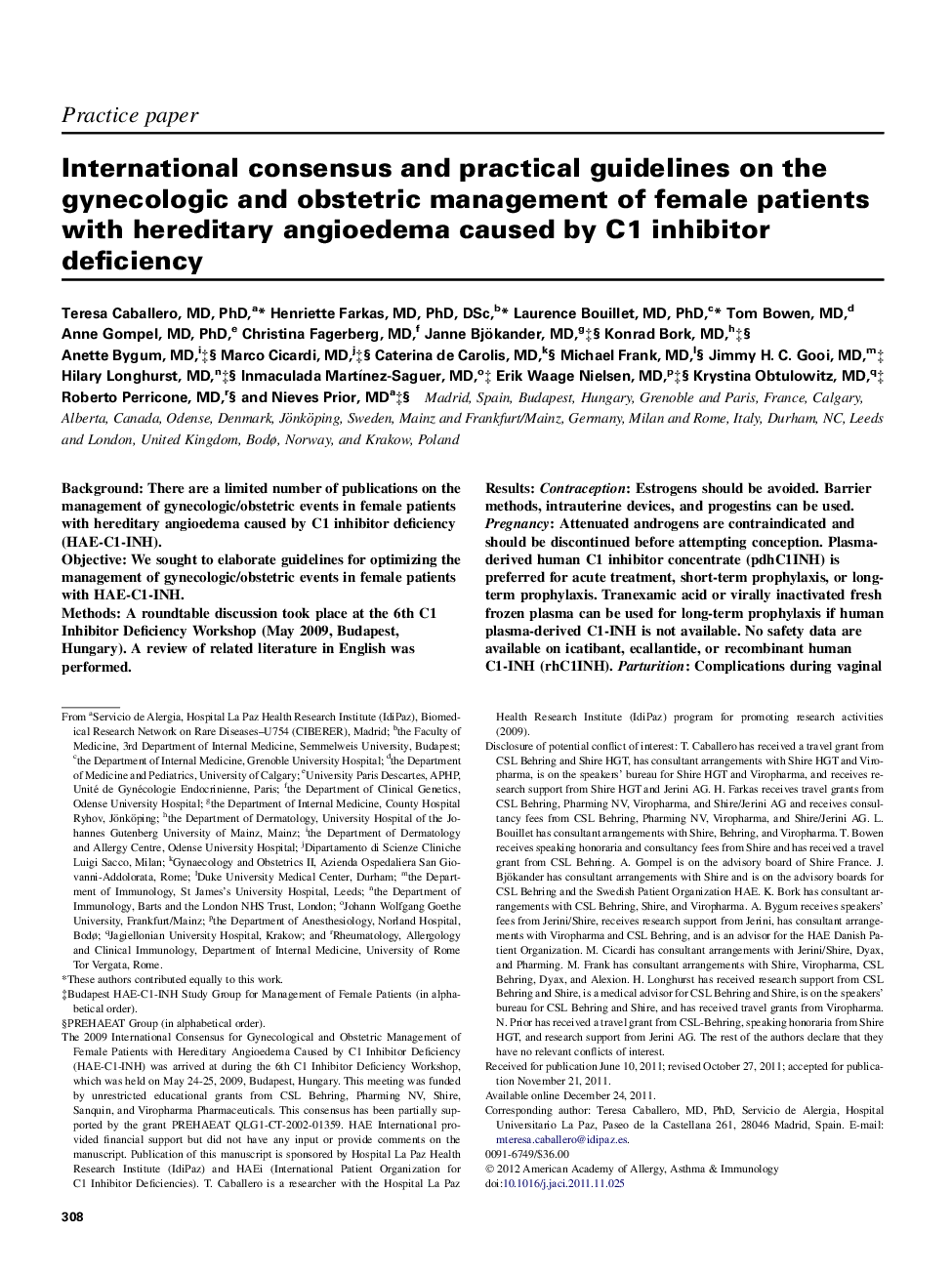| کد مقاله | کد نشریه | سال انتشار | مقاله انگلیسی | نسخه تمام متن |
|---|---|---|---|---|
| 3199106 | 1201907 | 2012 | 13 صفحه PDF | دانلود رایگان |

BackgroundThere are a limited number of publications on the management of gynecologic/obstetric events in female patients with hereditary angioedema caused by C1 inhibitor deficiency (HAE-C1-INH).ObjectiveWe sought to elaborate guidelines for optimizing the management of gynecologic/obstetric events in female patients with HAE-C1-INH.MethodsA roundtable discussion took place at the 6th C1 Inhibitor Deficiency Workshop (May 2009, Budapest, Hungary). A review of related literature in English was performed.ResultsContraception: Estrogens should be avoided. Barrier methods, intrauterine devices, and progestins can be used. Pregnancy: Attenuated androgens are contraindicated and should be discontinued before attempting conception. Plasma-derived human C1 inhibitor concentrate (pdhC1INH) is preferred for acute treatment, short-term prophylaxis, or long-term prophylaxis. Tranexamic acid or virally inactivated fresh frozen plasma can be used for long-term prophylaxis if human plasma-derived C1-INH is not available. No safety data are available on icatibant, ecallantide, or recombinant human C1-INH (rhC1INH). Parturition: Complications during vaginal delivery are rare. Prophylaxis before labor and delivery might not be clinically indicated, but pdhC1INH therapeutic doses (20 U/kg) should be available. Nevertheless, each case should be treated based on HAE-C1-INH symptoms during pregnancy and previous labors. pdhC1INH prophylaxis is advised before forceps or vacuum extraction or cesarean section. Regional anesthesia is preferred to endotracheal intubation. Breast cancer: Attenuated androgens should be avoided. Antiestrogens can worsen angioedema symptoms. In these cases anastrozole might be an alternative. Other issues addressed include special features of HAE-C1-INH treatment in female patients, genetic counseling, infertility, abortion, lactation, menopause treatment, and endometrial cancer.ConclusionsA consensus for the management of female patients with HAE-C1-INH is presented.
Journal: Journal of Allergy and Clinical Immunology - Volume 129, Issue 2, February 2012, Pages 308–320